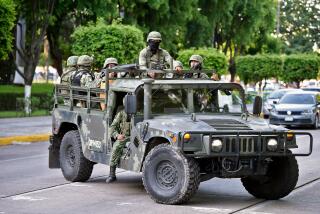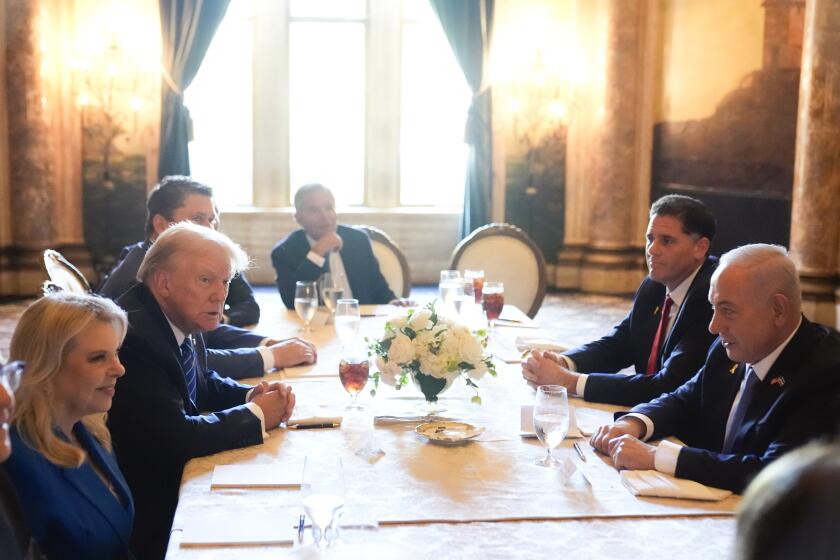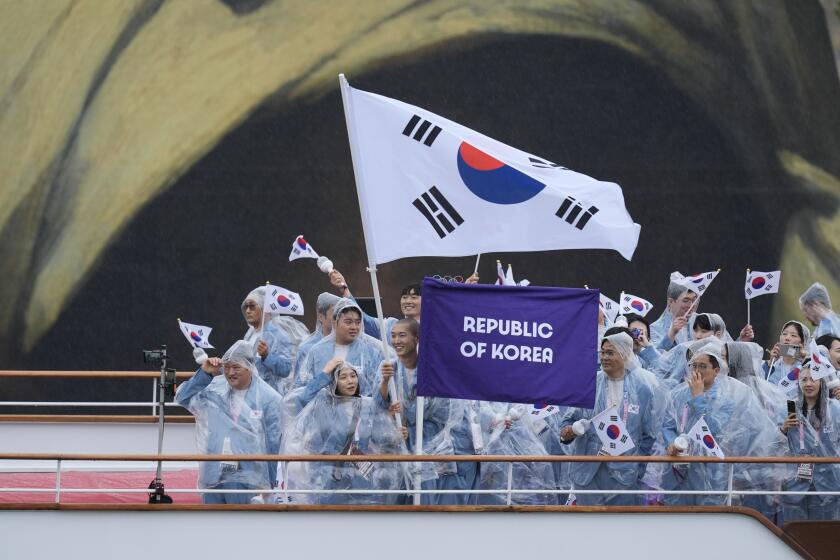San Salvador Gets Archbishop; He Vows Less Political Stance
Ending two decades of politically activist leadership of the Roman Catholic Church in El Salvador, Pope John Paul II has named the Rev. Fernando Saenz Lacalle to be archbishop of the capital city of San Salvador.
Saenz Lacalle, 62, will be installed Sunday, succeeding Bishop Arturo Rivera y Damas, who died Nov. 26 of a heart attack.
Saenz Lacalle assumes the post once held by Archbishop Oscar Romero, the conservative prelate who turned radical in the late 1970s during El Salvador’s bloody civil war. Romero was gunned down in a church in 1980 by a death squad made up of officers associated with the ultra-right military, business and political elite, according to an independent investigation by the United Nations.
Romero, known as “the voice for those with no voice,” used his influential pulpit at the San Salvador cathedral to rally the church to the side of the poor and to condemn human rights abuses and economic exploitation by the country’s military and economic elite.
Rivera continued Romero’s brand of “liberation theology” and played a key mediating role between leftist rebels and the government that resulted in peace talks and the end of the civil war in 1992.
The civil war took a heavy toll on the church.
In addition to the assassination of Romero, six Jesuits at San Salvador’s Central American University were slain by right wing death squads in 1989. In 1980, four American missionaries--three nuns and a lay worker--were kidnaped and murdered by suspected right wing police.
Saenz Lacalle said he will pull the church back from politics and follow a different path than that of Romero and Rivera.
In a statement issued after his appointment, Saenz Lacalle stressed the need of “working to eradicate poverty” but added: “Liberation theology no longer has a place in El Salvador.”
He told a news conference that liberation theology is a “rereading of the gospel in Marxist code that tends toward violence.” That view is shared by high Vatican officials, including Cardinal Joseph Ratzinger, head of the Congregation for the Doctrine of the Faith.
Saenz Lacalle implicitly criticized Romero’s practice of using his Sunday sermons to inveigh against the country’s elite and urge justice for the poor.
“The homily is a commentary on the gospel . . . and not a political denunciation,” Saenz Lacalle told reporters. “A bishop doesn’t speak of politics, he speaks of religion. I am not thinking of talking about politics.”
A native of Spain, Saenz Lacalle studied philosophy and theology at schools in Rome run by Opus Dei, the controversial orthodox and politically conservative movement in the church.
After his ordination as an Opus Dei priest in 1959, he moved to El Salvador to oversee the movement’s work in that country and became a citizen in 1966. In 1993 he became head of the nation’s military chaplaincy, a post that he will retain.
The conservative government of President Armando Calderon Sol has welcomed the appointment.
“Our administration sees in Msgr. Saenz Lacalle a great evangelist and pastor capable of helping reach the social peace Salvadorans desire so much,” the government said.
But advocates of liberation theology expressed disappointment.
“This appointment ruptures the tradition of an archdiocese and an archbishopric that has, for more than 50 years, been theologically and pastorally committed to the poor majorities, to illuminating reality through the light of the gospel and to prophetic denunciations,” the Rev. Rodolfo Cardenal, a Jesuit and vice rector of Central American University, told the National Catholic Reporter, an independent, lay-edited newspaper based in Kansas City, Mo.
More to Read
Sign up for Essential California
The most important California stories and recommendations in your inbox every morning.
You may occasionally receive promotional content from the Los Angeles Times.






